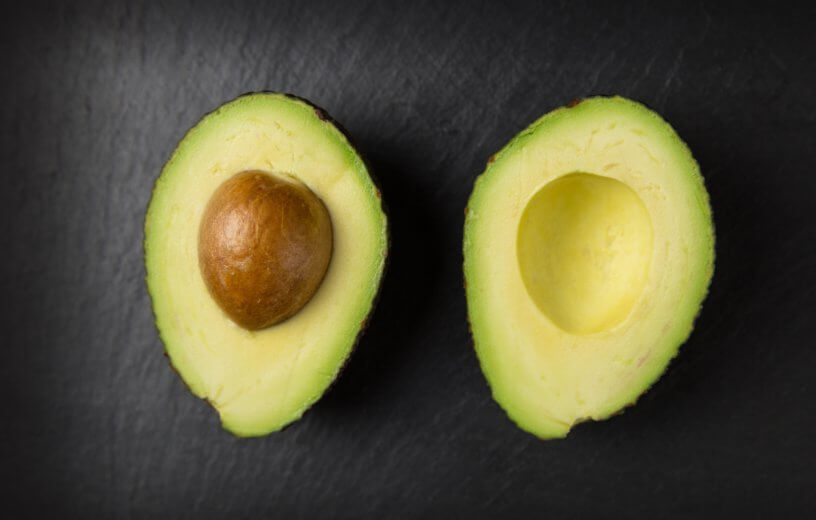UNIVERSITY PARK, Pa. — Everyone knows an apple a day keeps the doctor away. If you are having a difficult time keeping your bad cholesterol levels at bay, however, you may want to incorporate an avocado into your daily diet as well. That is, according to a new set of research conducted at Penn State University.
Bad cholesterol was classified by the study’s authors as either oxidized low-density lipoprotein (LDL) or small, dense LDL particles. While high-density lipoprotein (HDL), or good cholesterol, helps promote blood flow and reduces one’s risk of heart disease, bad cholesterol has the opposite effect and narrows arteries, restricting the flow of blood throughout the body.
After conducting a randomized, controlled feeding study, the research team concluded that eating one avocado per day was associated with lower levels of bad cholesterol in overweight or obese adults.
“We were able to show that when people incorporated one avocado a day into their diet, they had fewer small, dense LDL particles than before the diet,” says distinguished professor of nutrition Penny Kris-Etherton in a release. “Consequently, people should consider adding avocados to their diet in a healthy way, like on whole-wheat toast or as a veggie dip.”
Kris-Etherton would go on to add that dense LDL particles are especially harmful because they promote the buildup of plaque in arteries.
Researchers determined that avocados help do away with LDL particles that have been oxidized within the body. This process of oxidization can be harmful to the human body in the same way that oxygen can damage food, like a sliced apple eventually turning brown, for example.
“A lot of research points to oxidation being the basis for conditions like cancer and heart disease,” Kris-Etherton explains. “We know that when LDL particles become oxidized, that starts a chain reaction that can promote atherosclerosis, which is the build-up of plaque in the artery wall. Oxidation is not good, so if you can help protect the body through the foods that you eat, that could be very beneficial.”
Prior research had already found that avocados helped reduce bad cholesterol, but this study’s authors were specifically interested in if avocados could also help reduce oxidized LDL particles.
So, researchers gathered 45 adult subjects, all of whom were either overweight or obese. Each adult followed an initial two-week “run-in” diet designed to follow a typical American diet. This was done so that all of the participants started the research on relatively similar nutritional “footing.”
Then, each adult took part in five weeks of three separate diets, in a randomly assigned order: a low-fat diet, a moderate-fat diet, and a moderate-fat diet that included one avocado per day. While completing the no-avocado moderate-fat diet, participants made up for the lack of avocados by eating extra healthy fats designed to mimic the amount of monounsaturated fatty acids found in avocados.
After completing the five-week avocado diet, participants displayed significantly lower levels of oxidized LDL cholesterol compared to before the study began at all, or after completing the other two diet assignments. More specifically, there was a clear reduction in small, dense oxidized LDL cholesterol particles.
Additionally, after following the avocado diet, adults exhibited beneficial levels of the antioxidant lutein.
“When you think about bad cholesterol, it comes packaged in LDL particles, which vary in size,” Kris-Etherton comments. “All LDL is bad, but small, dense LDL is particularly bad. A key finding was that people on the avocado diet had fewer oxidized LDL particles. They also had more lutein, which may be the bioactive that’s protecting the LDL from being oxidized.”
According to the research team, since the moderate-fat diet without avocados was designed to also include essentially the same monounsaturated fatty acids found in avocados, the disparity in results among the two diets indicates that avocados contain additional bio-actives that help combat bad cholesterol.
While these results are very promising, the research team caution that additional research is still needed before any definitive conclusions can be agreed upon.
“Nutrition research on avocados is a relatively new area of study, so I think we’re at the tip of the iceberg for learning about their health benefits,” Kris-Etherton concludes. “Avocados are really high in healthy fats, carotenoids — which are important for eye health — and other nutrients. They are such a nutrient-dense package, and I think we’re just beginning to learn about how they can improve health.”
The study is published in The Journal of Nutrition.
